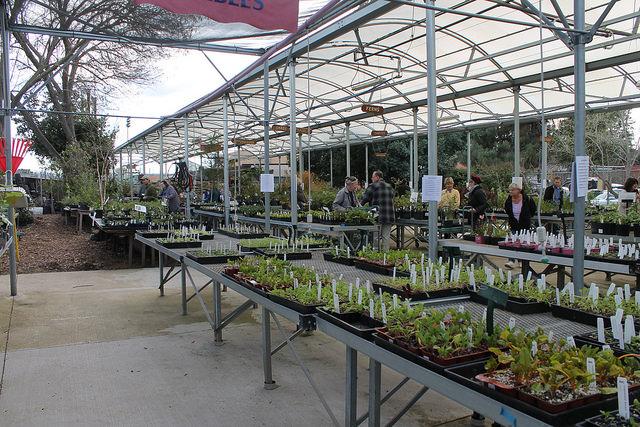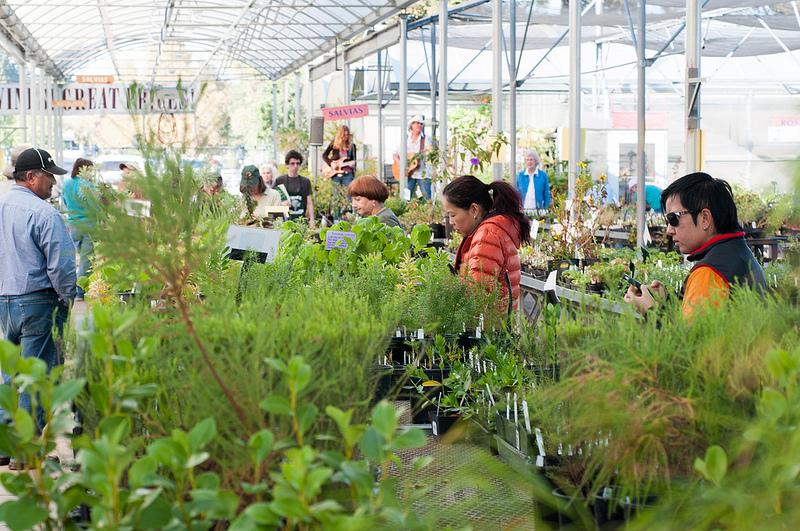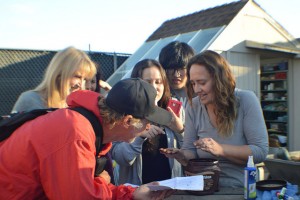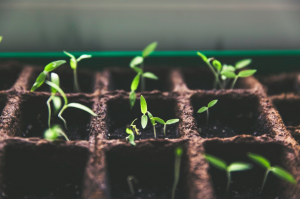DVC Horticulture holds annual plant sale
DVC Horticulture holds its annual plant sale on February 24, 2017.
March 2, 2017
Trees, roses, annual blooming plants and more were available for purchase during the Horticulture department’s annual plant sale.
About 50 people came Friday afternoon to well-priced plants with lots of variety. Each aisle came with information about the plants for sale, like its soil requirements, best conditions for sun exposure, and approximate height.
Student Tuesday L., 25, has been in the horticulture department for two years, with this sale being her “6th or 7th that she has participated in.”
She noticed that mostly expert growers come in and shop, but also a lot of beginners come to look around and see what to take on.
“For any new growers, I recommend any leafy green plants like kale, lettuce, or spinach, and even onions,” she said.
Also for sale were veggie boxes, where eight easy to grow plants often used in cooking could be bought by both serious and budding enthusiasts.
In addition to tool sharpening, soil testing was also available and is also necessary for the best possible plant growth.
Horticulture Club president Peter Swenson has been in the department for two and a half years, and notes that “Plants have their own fashion-like trends.”
Swenson also says that what people are interested in growing is important, and another factor that is essential to choosing a plant depends on where you live and the type of soil in your garden.
Student Susan N. also agrees, saying that “People have to know whether they want edible plants or ones that smell good. It really depends on what gives you the most delight.”
“As for me, I like to eat them.”
She noticed that the rare fruit trees were some of the most popular Saturday morning, with types such as ice cream bean trees, plums, cherries and guavas often being picked out by customers.
The horticulture department also has been making contacts with local businesses like Orchard Nursery in Lafayette and Sloat Gardening Center in Pleasant Hill.
As for the plants that don’t get sold, Swenson says the students keep them, pot them back up, donate them or compost them on campus.
“It’s a hard job to do, but it’s all part of the learning process,” he says.










































































